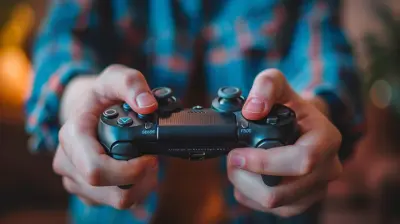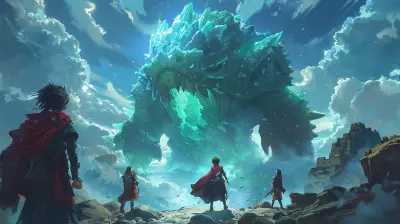Are We Playing as the Villain in Metroid?
13 November 2025
Have you ever paused your game, stared at the screen mid-battle with Ridley, and thought, “Wait a second… are we the baddie?” It’s an odd question, right? Especially when we’re talking about Samus Aran — intergalactic bounty hunter extraordinaire, destroyer of space pirates, defender of the galaxy. But if you dig a little deeper into the Metroid series, it starts to get a little murky. Like, morally murky.
Let’s unpack this idea. Are we truly the hero in the Metroid games, or are we unknowingly playing the role of a villain masked by a shiny power suit?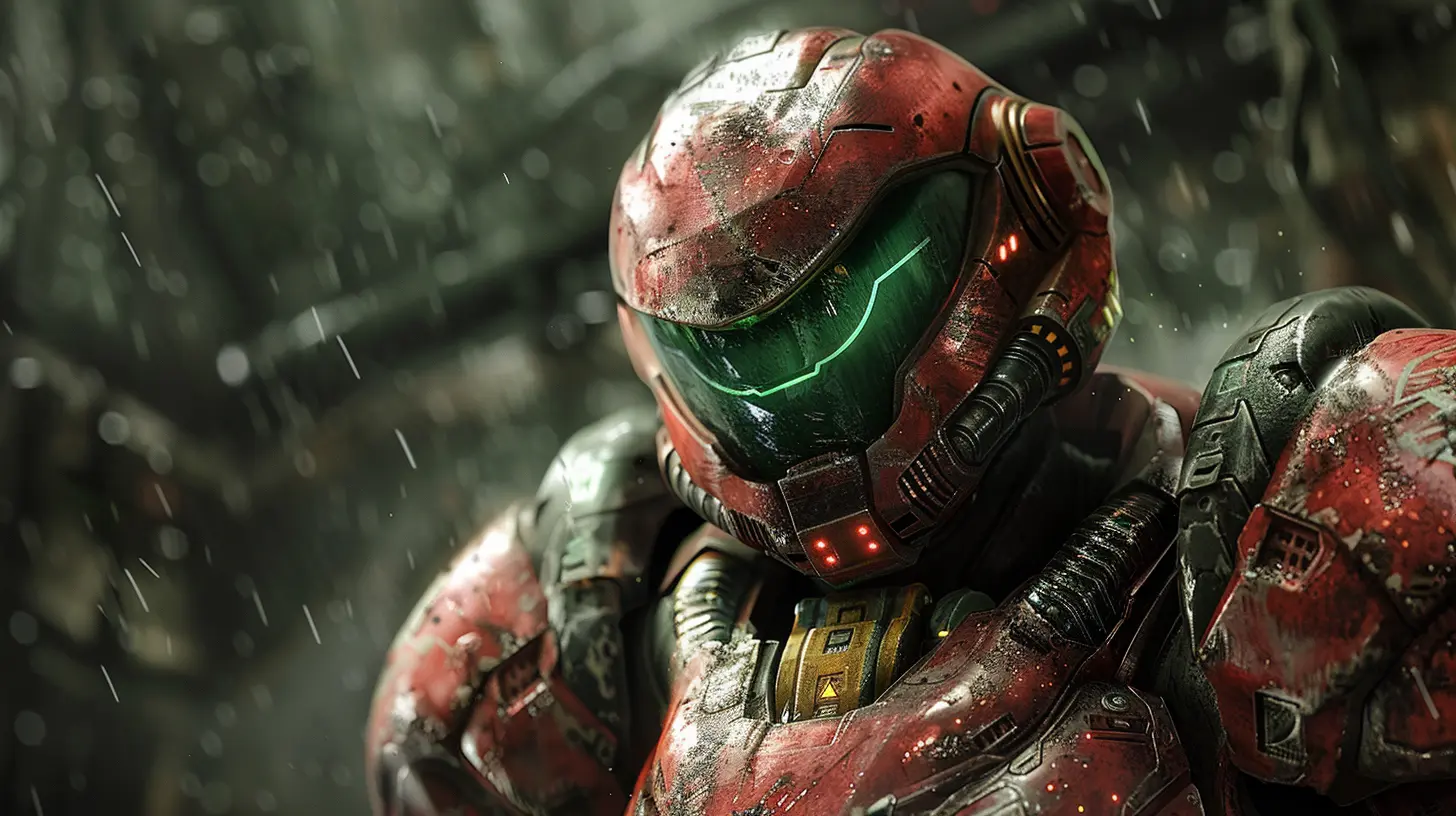
What Makes a Villain Anyway?
Before we throw Samus under the morality bus, we’ve got to ask — what even defines a villain? Is it someone who destroys without mercy? Someone driven by greed or power? Or could it be someone who thinks they're doing the right thing... but causes more harm than good?In fiction, villains are often portrayed as the “other” — alien, robotic, monstrous. But villainy isn’t always wrapped in black cloaks and evil laughs. Sometimes, it takes the form of a lone warrior spreading destruction in the name of justice.
Kinda unsettling when you put it that way, huh?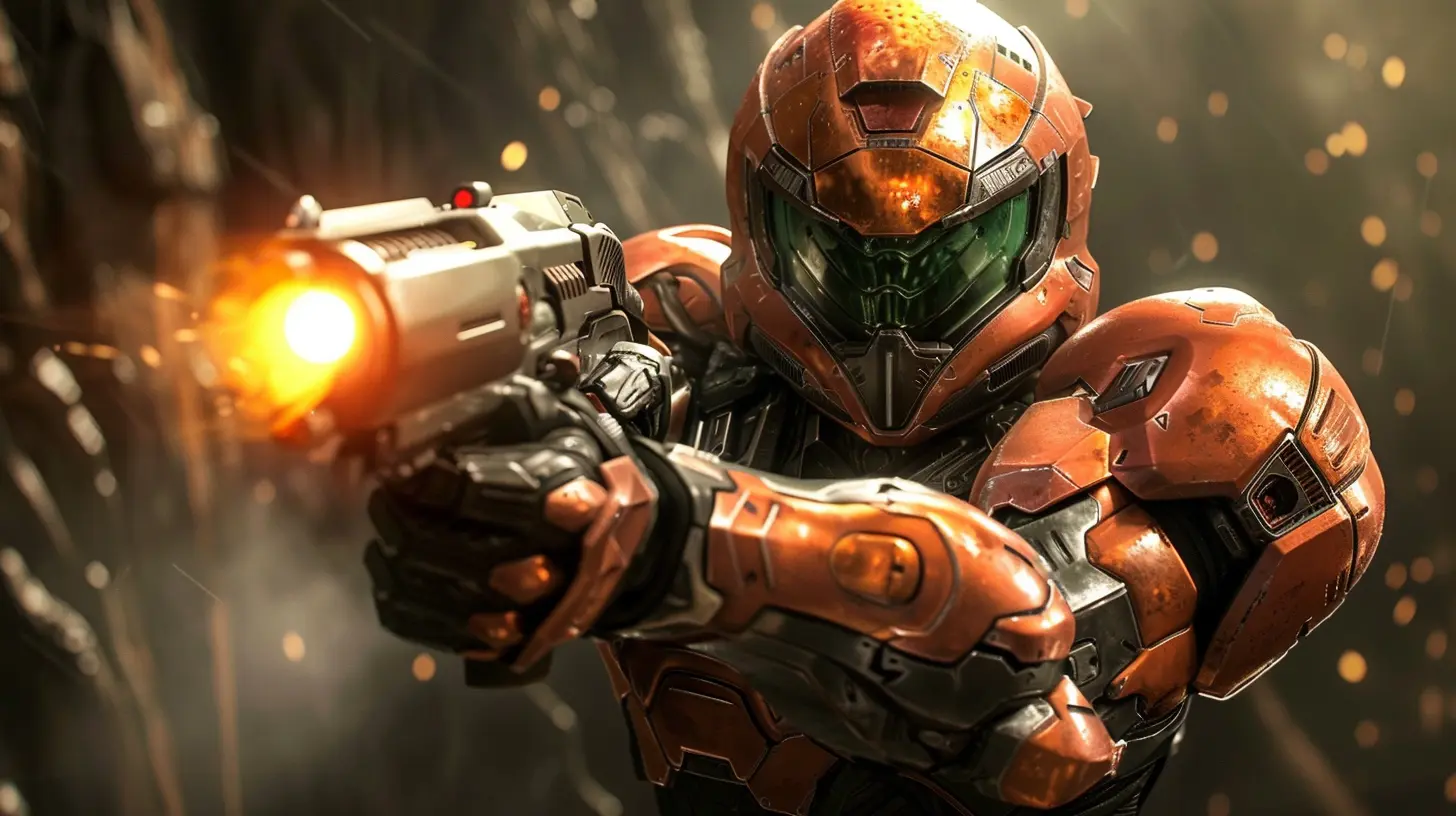
Samus Aran: The Hero We've Always Seen
From the beginning, Samus is painted as a straight-up badass hero. She’s a one-woman army taking on a universe of threats — Space Pirates, Ridley, Mother Brain, and of course, the titular Metroids. And let’s not kid ourselves — it feels amazing obliterating those alien monstrosities.She’s our avatar in this alien world. We see the game through her eyes, and we trust her motivations because the game tells us to. She works for the Galactic Federation, after all — the good guys, right?
But the deeper you get into the lore, the more shades of gray start creeping in.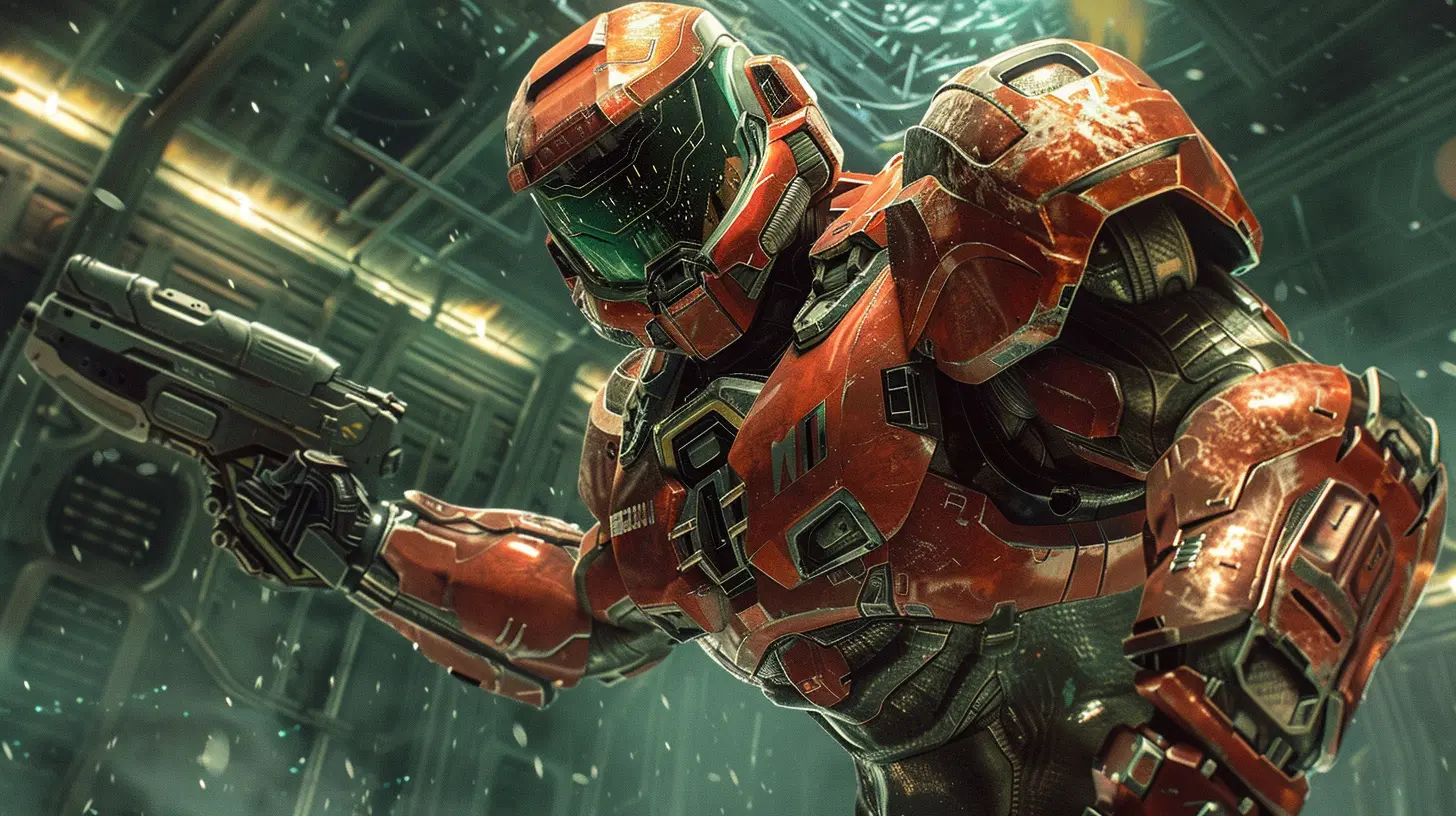
The Metroids: Monsters or Misunderstood?
Let’s get real — Metroids are terrifying. Giant floating jellyfish that suck the life out of anything they touch? Yeah, hard pass. The instinct is to blast them on sight.But here’s the twist — Metroids weren’t inherently evil. They were artificially created by the Chozo to keep another dangerous organism (the X parasites) in check. In other words, they were a biological weapon with a purpose — one that was twisted and exploited by others. Sound familiar?
Throughout the series, Samus not only hunts Metroids to extinction but does so at the request of people who don’t always have the best intentions (looking at you, Galactic Federation). At times, she even disobeys orders because she sees the danger of what these higher powers are trying to do.
So who’s really pulling the strings here?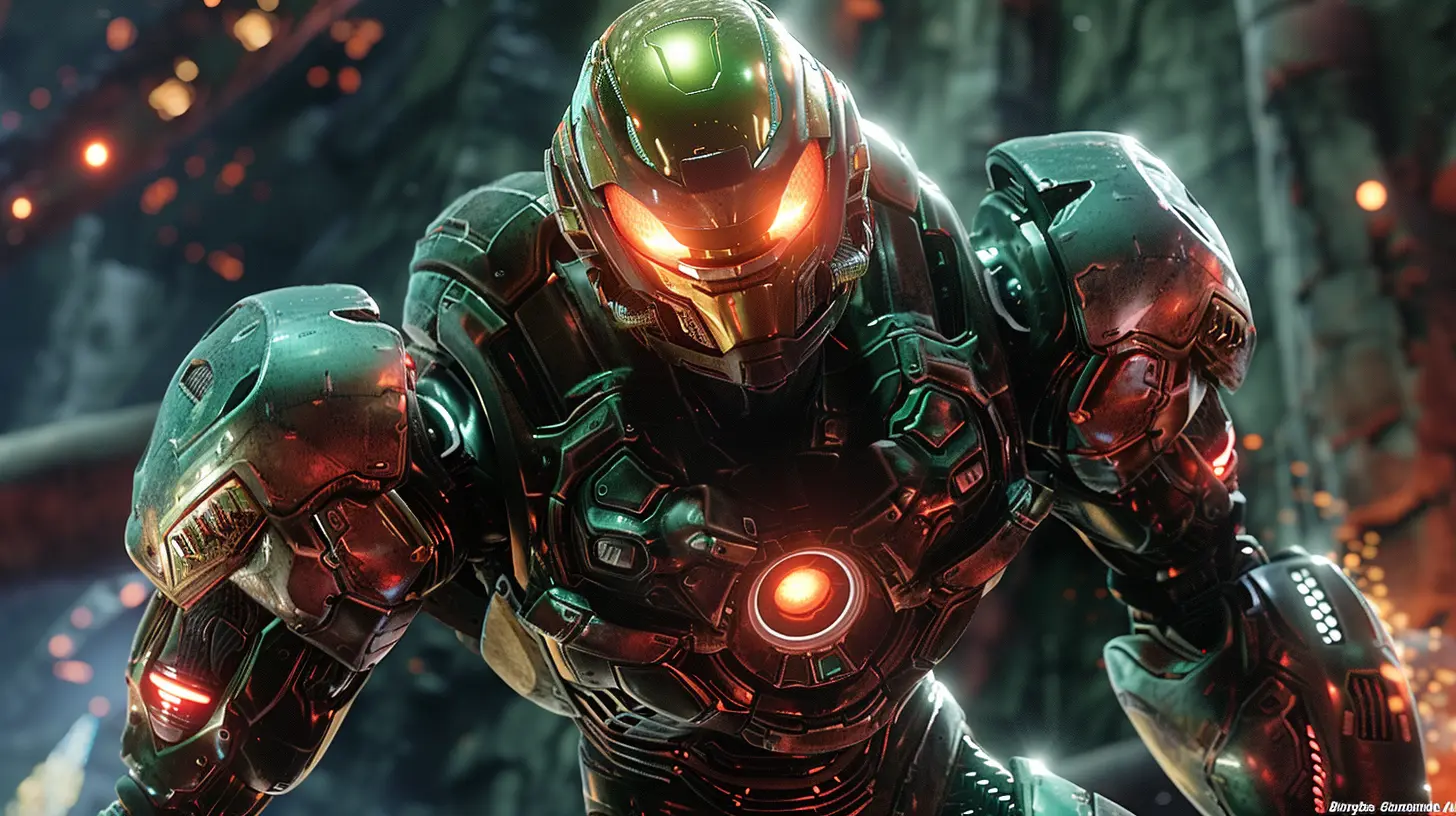
The Galactic Federation: Not So Innocent
If you’ve played Metroid Fusion or Metroid Dread, you already know the Galactic Federation isn’t all sunshine and rainbows. They’re shady. Secret experiments, hidden agendas, and an obsession with weaponizing alien species. It's like every sci-fi trope about the corrupt government rolled into one superpower.They order Samus around, send her on deadly missions, and often withhold vital information. At times, they treat her more like a tool than a person.
And when Samus defies them — especially in Metroid Fusion, where she destroys the station rather than let the X parasite be turned into a weapon — she essentially breaks the chain of command. She becomes a rogue agent.
Is going against authority the right call? Probably. But it also puts her at odds with the very system she once served. That rogue line she crosses? That’s where the “villain” argument starts taking shape.
Metroid: Other M – The Emotional Tangle
Yeah, we have to talk about Metroid: Other M. Love it or hate it (and many fall into the second camp), it adds layers to Samus’ character. It dives into her past, her trauma, and her complicated relationship with authority — namely Adam Malkovich, her former commanding officer.In Other M, she shows a level of obedience that borders on self-destructive. But what’s more interesting is how she reacts emotionally — particularly with Baby Metroid’s death. That creature had bonded with her, protected her, and ultimately sacrificed itself for her.
It wasn’t just a monster. It was something more. And Samus mourned it.
That alone shows us she’s not just a cold bounty hunter — she’s someone grappling with the role she’s forced to play. She’s questioning if she’s still on the right side of history.
Who's the Real Enemy?
This is where things start to feel like a sci-fi episode of Black Mirror.In most Metroid games, you show up, annihilate everything in your path, blow up a planet or two, and leave. Rinse and repeat. But many of Samus’ targets — the Metroids, the X parasite, even Mother Brain — weren’t inherently evil until someone weaponized them.
And who ends up trying to use them most of the time? Yeah, humans. The Galactic Federation turns dangerous lifeforms into tools. Space Pirates do the same, just more brutally. Even Samus, in earlier games, is fulfilling orders that ultimately result in genocide — the complete eradication of a species.
If you flip the perspective, it’s pretty chilling. Imagine playing from the Metroid’s point of view: a species targeted, hunted, and eliminated by a powerful armored invader. Sounds a lot less heroic, doesn’t it?
Samus the Destroyer: Justified or Ruthless?
We’ve all had our fun turning Samus into an unstoppable force — charging through corridors, morphballing into tunnels, launching missiles at anything that moves. It’s exhilarating. But it’s also worth asking: is she the destroyer of threats, or the threat herself?In stories like Metroid Dread, she’s being hunted by machines (EMMI units) designed for extermination. But there’s a frightening parallel — isn’t that essentially what she is to alien lifeforms? A precision tool for destruction?
The term “bounty hunter” suggests she takes jobs for pay. But over time, that title feels a little misleading. She’s more of a clean-up crew. A terminator with a heart.
And yeah, she’s got emotional depth. She cares. She questions herself. But her body count is hard to ignore, especially when it includes entire species.
Playing as the Villain: A Matter of Perspective
Let’s be clear — Samus doesn’t delight in destruction. She’s not cartoonishly evil. But that’s what makes the question so fascinating. The best villains don’t think they’re villains. They believe they’re right.Samus believes she’s preventing greater dangers every time she pulls the trigger. And she usually is. But does that justify everything?
In the end, it boils down to perspective. From the Galactic Federation’s point of view, she’s a tool they can’t control. From the Metroids’ point of view, she’s an extinction-level threat. From our point of view — the players — she’s a hero. But heroes can do terrible things if they believe the ends justify the means.
Why This Question Matters More Than Ever
We love the Metroid series for its tight gameplay, atmospheric worldbuilding, and mysterious storylines. But asking whether we’re playing as the villain doesn’t ruin that — it deepens it.Games are growing up. They’re pushing us to think — not just about scoreboards and boss fights, but about morality, agency, and consequences.
Metroid, at its core, has always been about isolation. The loneliness of space. The silence of corridors. The echo of your own footsteps. But maybe it’s also asking deeper questions, ones that quietly challenge our role.
Are we the savior of the galaxy? Or just another pawn in someone else's war?
Wrapping It Up: Samus Is Complicated… And That’s a Good Thing
So, are we playing as the villain in Metroid? Maybe. Maybe not. It depends on how you define “villain.” Samus Aran is complex. She’s not your cookie-cutter protagonist. She’s a survivor, a warrior, a protector — and yes, sometimes a destroyer.But that’s what makes her such an incredible character. She’s flawed. She questions herself. She evolves.
And maybe, in a world full of black and white, she’s the gray area we need.
Final Thoughts
Next time you boot up a Metroid game, take a second to ponder what side you're really on. Don’t worry — you can still blast aliens to bits. But maybe, just maybe, you’ll walk through those dark corridors with a little more thought behind your trigger finger.Because hero or villain — the story is always deeper than just who's aiming the gun.
all images in this post were generated using AI tools
Category:
Fan TheoriesAuthor:

Audrey McGhee
Discussion
rate this article
2 comments
Uri Summers
This is such an intriguing perspective! Exploring the idea of players embodying the villain in Metroid adds depth to the narrative. It certainly makes us rethink our role in the game!
February 15, 2026 at 4:50 AM
Presley Snow
Playing as the villain in Metroid? Finally, my chance to perfect my evil laugh while taking over planets! Just don’t ask me to do any actual villainy—sneezing loudly in stealth missions is already my signature move. Who knew intergalactic domination required such finesse?
November 13, 2025 at 5:05 AM

Audrey McGhee
Sounds like you're ready for a unique take on villainy! Embrace the chaos while perfecting that evil laugh!
